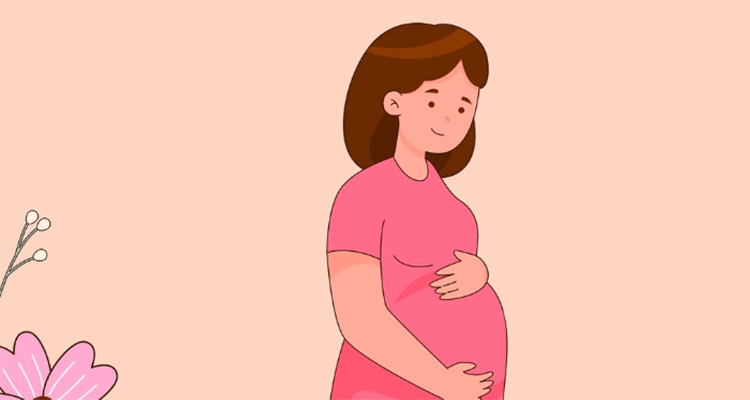Oligomenorrhoea, low menstrual flow, many women didn’t pay much attention to it. Nevertheless, when they had been attempting to conceive for an extended period of time and still did not get pregnant, they came to the realization that low menstrual flow might be the problem.
Will oligomenorrhea affect pregnancy?
Menstruation is a very important factor that determines the health condition of women. Low menstrual flow is often a sign of several body problems. Thus, in the worst cases, this phenomenon can also affect women’s fertility and even cause infertility.

Of course, there are many reasons that can cause low menstrual flow, but besides these factors, less menstruation due to nervousness, sadness, fright, overwork, and starvation , uterine diseases, ovarian diseases, and endocrine disorders will not only lead to less menstruation but also to a greater and more serious impact are the leading ones
01. Uterine disease
The regular shedding of the endometrium forms menstruation, which will be less menstrual flow once problems have been identified in the uterus, such as endometrial damage, intrauterine adhesions, endometritis, endometriosis, thin endometrium, etc. Any uterine disease can be the reason for low menstrual flow and infertility. Besides, uterine diseases have an impact on menstrual disorders, as they not only cause menstrual problems but also affect embryo implantation and development, thus, women are not able to get pregnant in an ordinary way.
02. Ovarian disease
There is a communication among the hypothalamus, the pituitary gland, and the ovary that regulates menstruation, where a problem has taken place such as polycystic ovary syndrome, ovarian cysts, premature ovarian failure, and the like that has the capability to hamper the production of both estrogen and progestogen through affecting the entire internal reproductive system. Hence, the main consequence of this will be that menstruation becomes scanty. Ovarian diseases are the sources of oligomenorrhea and infertility. Apart from menstrual irregularities, these diseases can affect the healthy growth, development, and maturation of follicles, which, in turn, hinder female reproductive capabilities or fertility.
03. Endocrine disorders
Just like other parts of the body, the reproductive system depends on hormonal regulation for its proper functioning and if there are endocrine disorders or abnormalities in hormone secretion, at the very least, they can cause reduced menstrual flow and, at most, ovulation disorders, altered menstrual flow, and menstrual cycles can be affected. If a woman is not capable of ovulating normally, then she will not be fertile. Endocrine disorders are the sources of oligomenorrhea and infertility.

To sum up, no matter which situation leads to low menstrual flow, it is very likely that it will result in female infertility. So, if there is low menstrual flow and if you have not been pregnant for over a year, female friends should seek medical advice timely not to aggravate the disease and affect fertility.

Meet Dr. Sneha Jha, a distinguished Radiation Oncologist committed to transforming lives through comprehensive cancer care. With a stellar academic background including an MBBS, DMRT, and DNB in Radiation Oncology, Dr. Jha stands at the forefront of innovation in cancer treatment. Her unwavering dedication to patient well-being, coupled with years of experience, ensures that each individual receives personalized, evidence-based care. Trust Dr. Sneha Jha for compassionate guidance and leading-edge treatments on your journey to healing.


